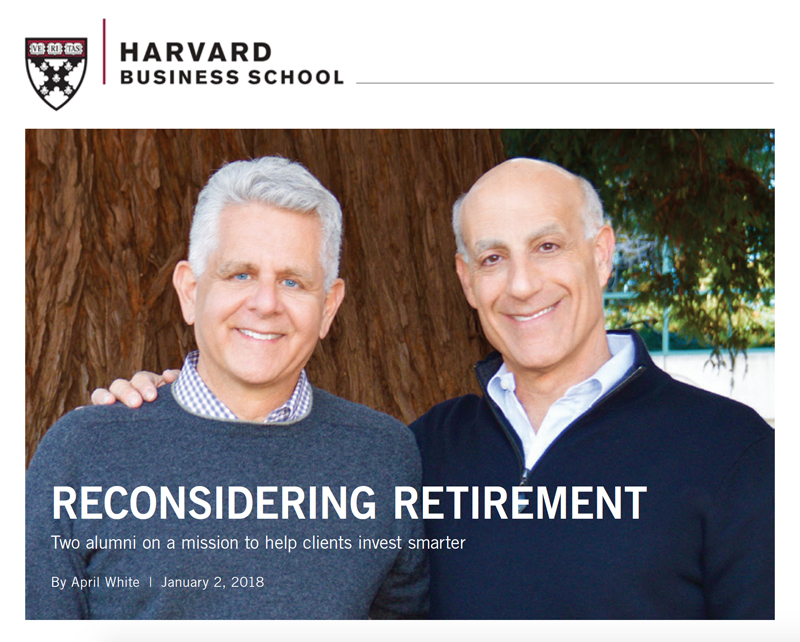
Mitch Tuchman (MBA 1982) was a successful software entrepreneur in the exuberant 1990s when his first son, Jack, was born. A year later, Tuchman’s life changed: He and his wife learned that Jack suffered from severe disabilities that would require lifelong care; and at about the same time, Tuchman sold his company for a profit. “Those events really shaped the way I invest,” he says. Amid the dot-com boom, when “people were doing a lot of really dumb things with money in Silicon Valley during those years,” Tuchman recognized the need to think long term. That meant looking not just a few decades ahead to his own retirement, but also as much as a century ahead to his infant son’s old age. He needed to think like a university shepherding its endowment.
That was the impetus behind Rebalance, the financial services company Tuchman founded in 2013 with classmate Scott Puritz (MBA 1982). The company takes advantage of recent advances in financial products and cloud computing to make available the type of investment services that were once reserved for multimillion-dollar investors to the average consumer, at a low cost. Many individuals are losing more than a third of their retirement savings to fees each year, Puritz says. “We want to show people how to retire with more. That is our mission.”
It made sense that the pair would find an entrepreneurial solution to what they discovered was a common problem. Tuchman and Puritz, whose friendship was forged on their second day of class at HBS, in 1980, are the sons and grandsons of entrepreneurs. Tuchman’s father ran a chain of dry cleaners in the Midwest and survived the polyester boom of the 1970s by branching into uniform rentals. Puritz’s father owned a men’s clothing store in New Jersey; the son accompanied him on buying trips to New York and watched him negotiate for the best merchandise and price. He had even launched his own successful business before arriving at HBS: a birthday cake delivery service that advertised to the parents of his college classmates. The friends were in the minority among their HBS classmates, many of whom aspired to join Wall Street. As it turned out, “entrepreneurial resourcefulness,” as Puritz calls it, has served them well throughout their careers and in the launch of Rebalance.
In addition to building an efficient back-end computer system to allow the company to reduce the costs paid to other firms—software expert Tuchman’s area—the men had to build trust with consumers used to relying on big-name financial services firms. That meant getting the right people on board, says Puritz. Together, they recruited Princeton economist Burt Malkiel (MBA 1955), former chair of the Yale endowment Charley Ellis (MBA 1963), and former head of IBM’s investment funds Jay Vivian (MBA 1978) to serve on the Rebalance Investment Committee.
The company has also invested in educating consumers, publishing a regular blog about the ins-and-outs of retirement savings, creating more than 70 videos on the basics of investing, and lobbying for regulatory changes that would benefit consumers. Puritz testified before the United States Senate in support of an Obama-era effort to require all financial services professionals to meet a fiduciary standard for clients.
Rebalance now has $525 million under management, but the real satisfaction comes from seeing clients discover a smarter way to save for retirement. “Our clients are smart, and they know that something doesn’t feel smart about their current retirement plan. They recognize that we want to help them and educate them,” says Puritz. “They become clients because the Rebalance approach just makes so much more sense.”
Photo Credit: Kim Marshall

